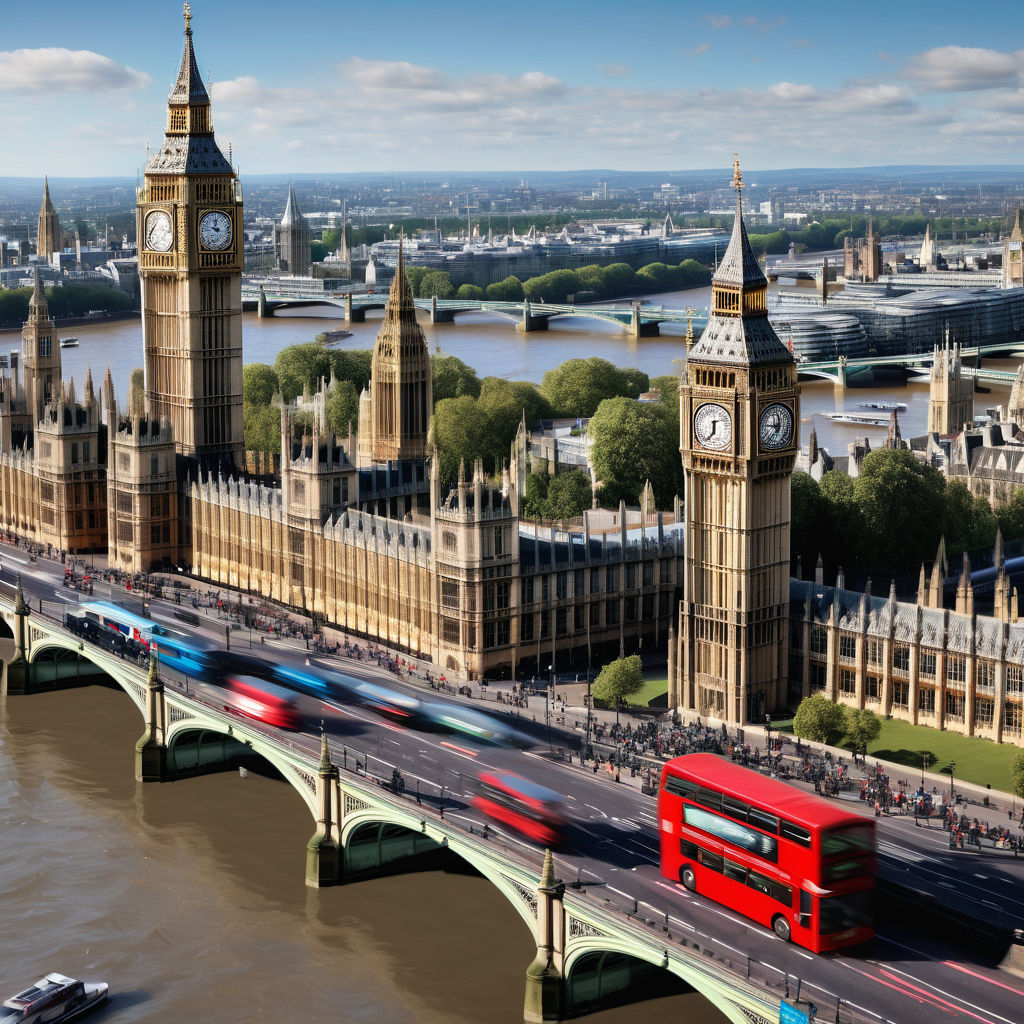Discover the United Kingdom: Rich Heritage, Cultural Diversity, and Social Dynamics
Exploring the UK's Cultural Tapestry, International Engagement, and Social Interactions

Introduction to the United Kingdom
The United Kingdom (UK), a sovereign country located off the northwestern coast of mainland Europe, consists of four nations: England, Scotland, Wales, and Northern Ireland. It is bordered by the Atlantic Ocean, the North Sea, the English Channel, and the Irish Sea. Major cities include London (the capital), Edinburgh, Cardiff, and Belfast. The UK's rich cultural heritage is shaped by its historical significance, including its role in the British Empire, its contributions to literature, music, and science, and its diverse population. Landmarks such as Buckingham Palace, Stonehenge, and the Scottish Highlands reflect the nation's unique history and culture.
Cross-national and Cross-cultural Understanding
The UK has a long history of interaction with other cultures, primarily due to its colonial past and its current status as a global hub for education, business, and tourism. Generally, people in the UK perceive and engage with other cultures with a mix of curiosity, respect, and inclusivity. The country actively promotes cross-cultural understanding through various initiatives and programs. Significant cultural exchanges and educational programs are a testament to the UK's commitment to global engagement. The British Council plays a crucial role in promoting British culture and education abroad, offering numerous scholarships and exchange programs. Universities in the UK, such as Oxford, Cambridge, and the London School of Economics, attract a large number of international students, fostering a multicultural academic environment. International partnerships also enhance cross-cultural understanding. The UK is involved in various cultural and educational agreements with countries worldwide, including the Erasmus+ program (until its recent withdrawal) and numerous bilateral agreements. These initiatives facilitate mutual respect and cooperation, enhancing global cultural ties.
Interactions and Social Dynamics
Interactions between people in the UK and foreigners are generally characterized by politeness and openness. British social behaviors are influenced by cultural values such as respect, fairness, and a sense of humor. These values are often reflected in the way people in the UK engage with outsiders. Social behaviors in the UK emphasize respect and formality, particularly in initial interactions. Greetings typically involve a handshake, and maintaining personal space is important. Politeness and understatement are significant aspects of British communication style, with people often using indirect language and euphemisms to convey their messages. Communication styles in the UK are generally reserved and polite. The British value subtlety and often avoid direct confrontation. Small talk about the weather or current events is common, and humor, particularly self-deprecating humor, is frequently used to build rapport. Language plays a crucial role in facilitating interactions. English is the official language, and while there are regional dialects and languages such as Welsh and Gaelic, English is widely spoken and understood. Multilingualism is increasingly important, especially in cosmopolitan cities like London, where numerous languages are spoken due to the diverse population.
Views on Dating and Relationships
Dating and relationships between people in the UK and foreigners are common and generally viewed positively. British society tends to be open-minded about cross-cultural relationships, seeing them as opportunities for cultural exchange and personal growth. However, cultural expectations and traditions can still influence dating dynamics. In British dating culture, there is often an emphasis on equality and mutual respect. Relationships are typically pursued with a long-term perspective, and there is a strong focus on compatibility and shared values. Gender roles are generally more balanced, with both partners often contributing equally to the relationship. Cultural expectations and traditions, such as the importance of personal space and independence, can impact relationships. Understanding and respecting these cultural norms is essential for successful cross-cultural relationships in the UK.
Marriage and Family
Marrying foreigners is widely accepted in the UK, although it comes with certain social and familial considerations. Legal considerations for such marriages are straightforward, with clear regulations for international unions governed by UK civil law. Socially, families in the UK may initially have reservations about cross-cultural marriages due to concerns about cultural differences and social compatibility. However, acceptance typically increases as relationships develop and families get to know the foreign partner. Family plays an important role in British culture, and marrying into a British family often involves understanding and respecting familial traditions and obligations. Common practices in cross-cultural marriages include celebrating both British and foreign traditions, creating a blended cultural environment. For example, a couple might celebrate British holidays like Christmas and Easter alongside holidays from the foreign partner's culture.